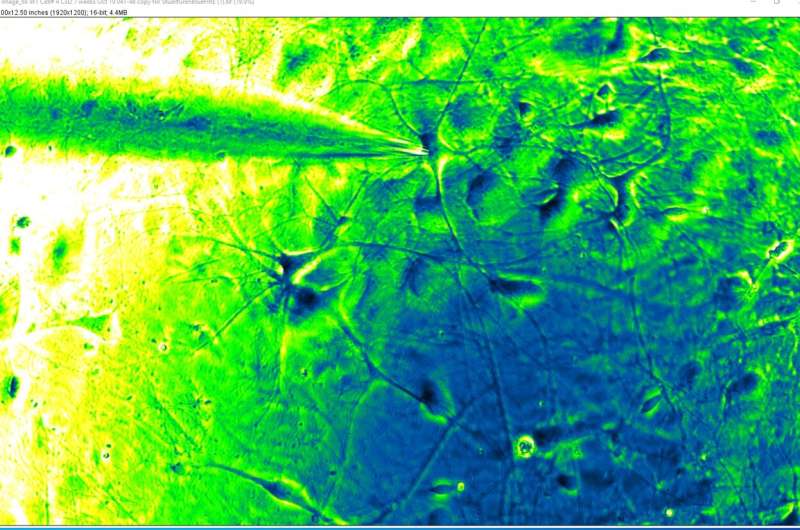Scientists uncover new molecular drivers of Alzheimer's
Originally published by The Scripps Research Institute, on May 22, 2024
A tiny glass tube (top left) represents the electrode recording from an excitatory human Alzheimer's neuron, generated using modern stem cell techniques (dark blue, at tip of tube). Credit: Scripps Research
According to the US Centers for Disease Control and Prevention, at least 5.8 million Americans are currently living with Alzheimer's disease, which is the most common form of dementia. There is no cure for Alzheimer's, in part because scientists do not yet have a full understanding of what causes the disease. But a new study from Scripps Research is shedding light on the molecular drivers that could contribute to Alzheimer's progression.
In the study, published in Advanced Science, the researchers used a new technique for studying single, living brain cells affected by Alzheimer's disease. By measuring the electrical activity of single neurons and the protein levels within those neurons, the scientists discovered new molecules linked to Alzheimer's. The hope is these molecules could be targeted by drugs to treat or slow the progression of the neurodegenerative disease in the future.
Close collaboration among Scripps Research's professors, including clinical neurologist Stuart Lipton, MD, Ph.D., protein expert John Yates, III, Ph.D., and bioinformaticist Nicholas Schork, Ph.D., (who is also the deputy director and distinguished professor of quantitative medicine at The Translational Genomics Research Institute, or TGen) enabled the scientists to develop this biotechnology feat.



Comments
Post a Comment